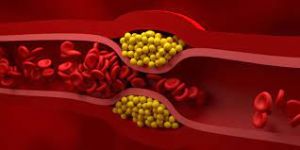
Understanding Cholesterol Levels: What’s Normal and What’s Not
Understanding the distinction between “bad” cholesterol and its counterpart is crucial for heart health. While cholesterol itself isn’t inherently bad, high levels of LDL, commonly referred to as “bad” cholesterol, can pose significant risks, leading to conditions like heart disease and stroke. Let’s delve into the sources and strategies to manage this aspect of our health effectively.

Cholesterol is a type of lipid, or fat, that is naturally produced in the body and is also found in certain foods. It is not inherently “bad,” but it is true that having high levels of cholesterol in the blood can increase the risk of heart disease and stroke.
There are two main types of cholesterol: low-density lipoprotein (LDL) and high-density lipoprotein (HDL). LDL is often referred to as “bad” cholesterol because it can contribute to the buildup of plaque in the arteries, which can lead to heart disease. HDL, on the other hand, is often referred to as “good” cholesterol because it helps remove LDL from the bloodstream.
Good cholesterol (HDL) and bad cholesterol (LDL) can come from various sources in our diet and lifestyle.
Sources of Good Cholesterol (HDL):
- Healthy Fats: Foods rich in unsaturated fats, such as avocados, nuts, seeds, and olive oil, can help raise HDL levels.
- Fatty Fish: Fishlike salmon, mackerel, and sardines are high in omega-3 fatty acids, which can boost HDL levels.
- Exercise: Regular physical activity, especially aerobic exercise like jogging or swimming, can increase HDL levels.
Sources of Bad Cholesterol (LDL):
- Saturated Fats: Foods high in saturated fats, such as red meat, full-fat dairy products, and processed foods, can raise LDL levels.
- Trans Fats: Trans fats are found in partially hydrogenated oils used in many processed and fried foods, raising LDL levels and lowering HDL levels.
- Excess Calories: Consuming more calories than your body needs, especially from unhealthy sources like sugary snacks and beverages, can contribute to high LDL levels.
It is important to maintain healthy levels of cholesterol through a balanced diet and regular exercise. In some cases, medication may also be necessary to control cholesterol levels. It is important to speak with a healthcare professional about individual cholesterol management.
Disclaimer: The information provided in this content is for general informational purposes only. It is not intended as medical or healthcare advice, diagnosis, or treatment. Always seek the advice of a qualified healthcare professional with any questions you may have regarding a medical condition or healthcare decisions.

